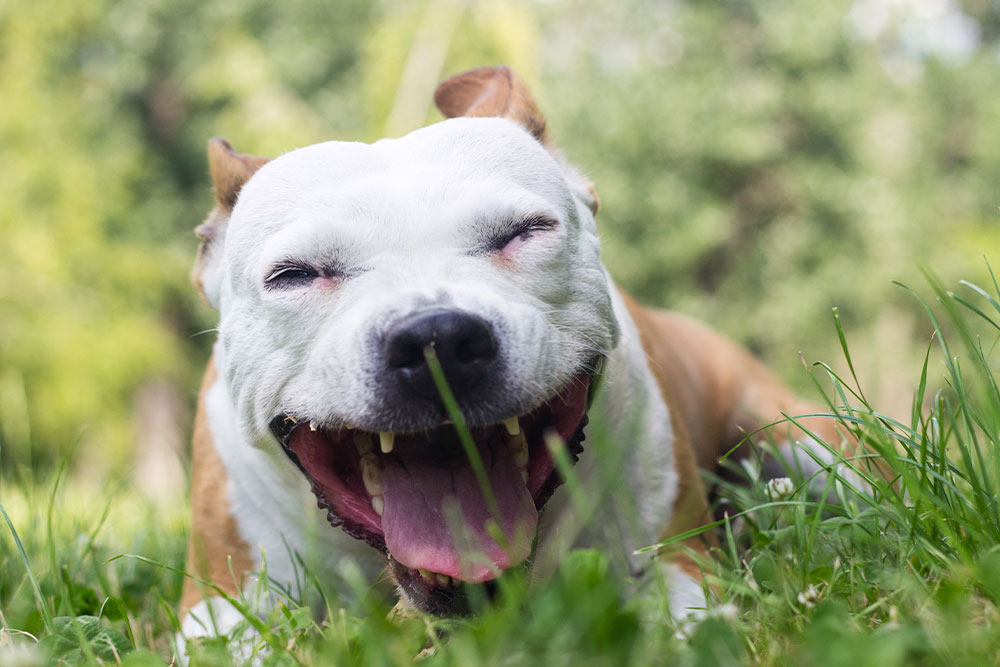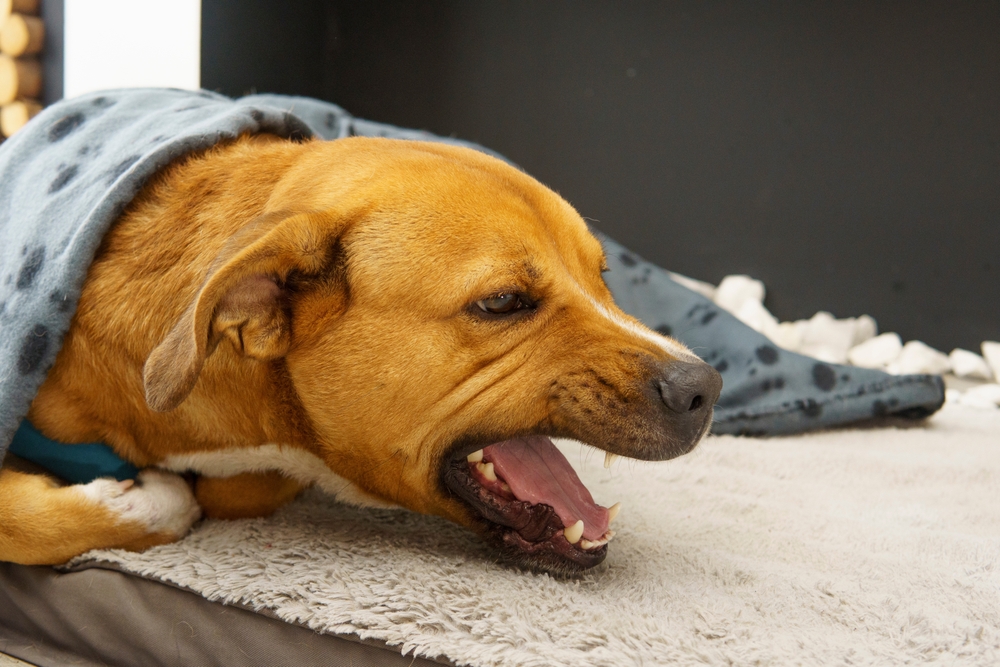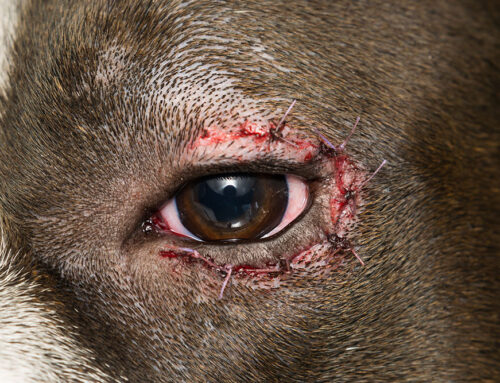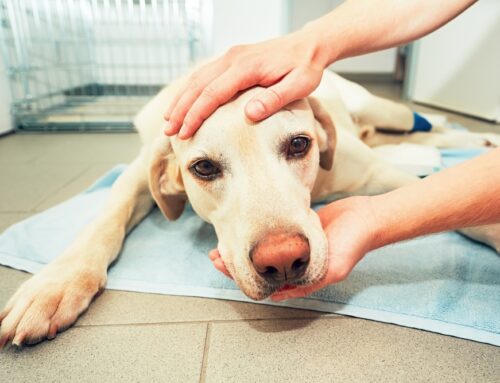The Truth About Kennel Cough and How to Protect Your Pet
While kennel cough often sounds alarming, it’s both treatable and preventable. This contagious infection spreads quickly in places where pets interact closely, but with proper vaccination, hygiene, and early veterinary care, most dogs recover fully. Acting fast helps prevent complications like pneumonia and protects other pets in your home and community.
At Wales Animal Clinic, we take a personal approach to every case. Our veterinarians tailor care for your pet’s unique needs, from diagnosing and treating respiratory infections to building individualized prevention plans that keep your dog or cat healthy all year long.
What Veterinarians Mean When They Say “Kennel Cough”
“Kennel cough” is an umbrella term for canine infectious respiratory disease complex (CIRDC)– a group of bacteria and viruses that cause similar respiratory symptoms. The condition spreads easily wherever dogs gather, from boarding facilities and groomers to parks and obedience classes.
Canine infectious respiratory disease transmits through airborne droplets when infected dogs cough, sneeze, or even bark. Shared toys, bowls, and surfaces also harbor germs. Because infected dogs can shed bacteria and viruses before showing symptoms, one contagious dog can unknowingly start an outbreak.
Cats and some exotic pets- like ferrets- can occasionally develop similar infections, especially in multi-pet households. That’s why hygiene and monitoring are key when one animal starts coughing.
Recognizing the Telltale Signs of Respiratory Infection
The hallmark symptom of kennel cough is a dry, hacking, or honking cough that may sound like your dog has something caught in their throat. It tends to worsen with excitement or pressure on the collar.
Other signs include:
- Gagging or retching with white foam
- Watery eyes and nasal discharge
- Mild lethargy or decreased activity
- Occasional low-grade fever
- Persistent coughing despite normal appetite
While most infections remain mild, watch for warning signs of respiratory distress in pets– labored breathing, open-mouth panting, blue gums, or collapse. These indicate a medical emergency and require immediate evaluation.
The Pathogens Behind the Cough
Kennel cough can be caused by several agents working alone or together. The most common bacterial culprit is Bordetella bronchiseptica, often paired with viral infections like canine parainfluenza or adenovirus type 2. Other possible contributors include canine respiratory coronavirus and canine distemper in unvaccinated dogs.
Stress, travel, or crowded boarding environments weaken the immune system, allowing these pathogens to spread more easily. Even previously vaccinated dogs can catch mild infections, but vaccines significantly reduce severity and duration of illness.
Why Kennel Cough Spreads So Easily
Kennel cough is highly contagious and can linger in the environment. Germs spread through cough droplets that stay airborne for minutes and survive on surfaces for hours. Shared airspace, like enclosed grooming rooms or play areas, increases exposure risk.
If your dog develops symptoms:
- Isolate them from other pets immediately.
- Wash your hands after contact.
- Clean bowls, bedding, and toys with pet-safe disinfectant.
- Avoid boarding, grooming, or dog parks until your veterinarian confirms it’s safe.
Preventing exposure protects other dogs- especially puppies, seniors, and those with chronic health issues who are more vulnerable to severe illness.
When a Simple Cough Becomes More Serious
Most kennel cough cases improve with rest and medication, but in some pets, the infection progresses.
Pneumonia can occur when bacteria invade the lungs, causing fever, lethargy, heavy breathing, and appetite loss. Severe cases require oxygen therapy, intravenous fluids, and antibiotics.
Other conditions can mimic kennel cough. Collapsed trachea– common in small breeds- causes a persistent honking cough triggered by excitement or pressure on the neck. Because the causes differ, accurate diagnosis is essential before starting treatment.
Emergency care is needed if your dog struggles to breathe, refuses water, or collapses. Difficulty breathing (dyspnea) always warrants immediate veterinary attention.
How Veterinarians Diagnose Kennel Cough
Diagnosis begins with a review of your pet’s recent activities. Boarding, daycare, or grooming visits within the past two weeks often point to CIRDC.
Your veterinarian listens to the chest and throat, sometimes gently pressing the trachea to trigger the characteristic cough.
For complicated or persistent cases, our team may perform additional diagnostic testing, such as:
- PCR panels to identify specific bacteria or viruses
- Chest X-rays to detect pneumonia or airway collapse
- Bloodwork to evaluate infection and organ function
At Wales Animal Clinic, our on-site laboratory and advanced imaging allow for same-day answers, ensuring your pet gets treatment without delay.
Treatment: Helping Your Pet Heal Comfortably
Most dogs recover within two to three weeks with supportive care. Rest and patience are key.
Your veterinarian may prescribe:
- Cough suppressants to calm the irritation
- Anti-inflammatories to reduce throat pain and swelling
- Antibiotics if bacterial infection or pneumonia is suspected
At home, use a humidifier or run a hot shower to create steam that eases breathing. Ensure fresh water and balanced meals to support recovery. Replace collars with harnesses to avoid pressure on the trachea.
Reduce activity and excitement until coughing subsides. Even when your dog seems better, keep them home from social activities until cleared by your vet- this prevents reinfection and protects others.
Preventing Kennel Cough: Vaccines and Hygiene
Vaccination remains the strongest defense. The Bordetella vaccine, often combined with parainfluenza and adenovirus protection, is recommended for most social dogs.
Our wellness and prevention programs create customized vaccine schedules based on your dog’s exposure risk, age, and health. Dogs that visit groomers, boarding facilities, or dog parks benefit from boosters every 6–12 months.
Hygiene matters too:
- Disinfect shared toys and bowls.
- Ensure good ventilation in pet areas.
- Avoid contact with coughing dogs.
- Follow boarding safety tips before leaving your pet at a kennel.
Even with vaccines, mild infections can occur- but symptoms are far less severe and recovery is quicker.
Can Cats Catch Kennel Cough?
Yes, though it’s uncommon. Bordetella infection in cats can occur in multi-pet households or shelters. Cats may sneeze, cough, or develop nasal discharge.
At Wales Animal Clinic, we treat cats and exotics with the same individualized approach we give to dogs. If both species share your home, keep them separated while one is sick and contact us for guidance on monitoring your cat’s respiratory health.
When to Seek Immediate Veterinary Care
Call us or an emergency facility right away if your pet:
- Struggles to breathe or pants heavily at rest
- Has blue or pale gums
- Collapses during coughing fits
- Develops a fever or stops eating
- Shows extreme lethargy or dehydration
We offer same-day appointments for urgent cases during business hours and will guide you through next steps if your pet needs emergency stabilization elsewhere.

A Personal Approach to Respiratory Health
At Wales Animal Clinic, we believe good medicine is about precision- but great medicine is about details. We get to know your pet’s baseline, lifestyle, and unique quirks, so that every recommendation feels personal and every treatment fits your family’s needs.
If your dog or cat develops a cough, don’t wait to see if it goes away. Early evaluation keeps recovery simple and prevents complications. From wellness care to advanced diagnostics, our compassionate team provides gold-standard veterinary care with heart.
Call Wales Animal Clinic today to schedule an appointment or discuss prevention strategies for your pet. Because here, your family is part of ours- and we’re always here to protect that bond.







Leave A Comment